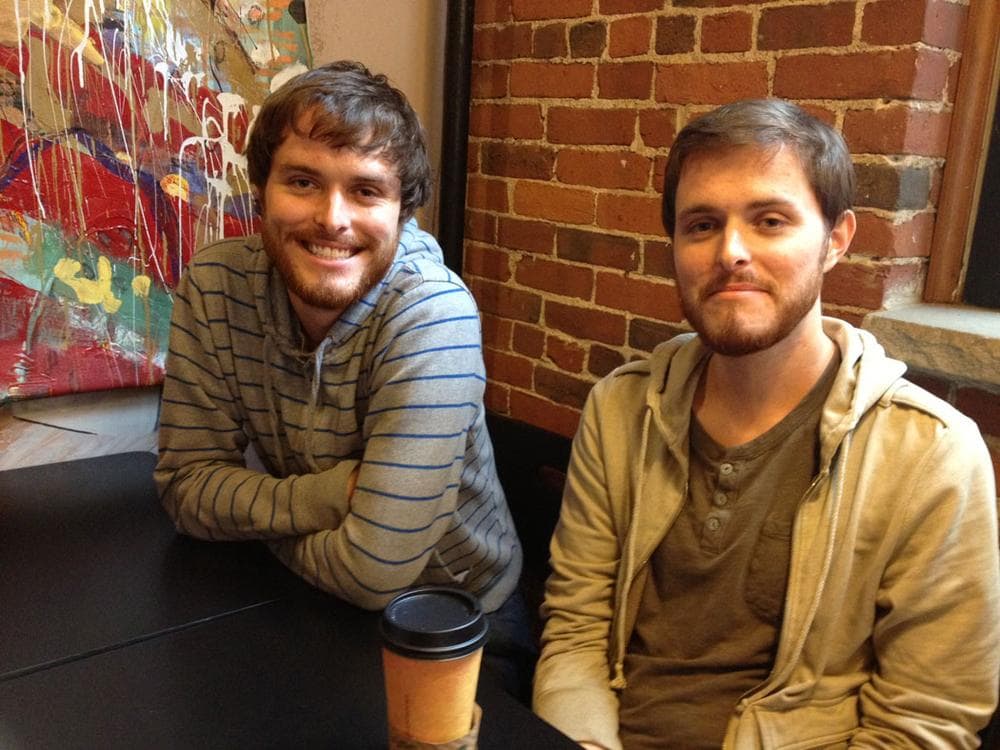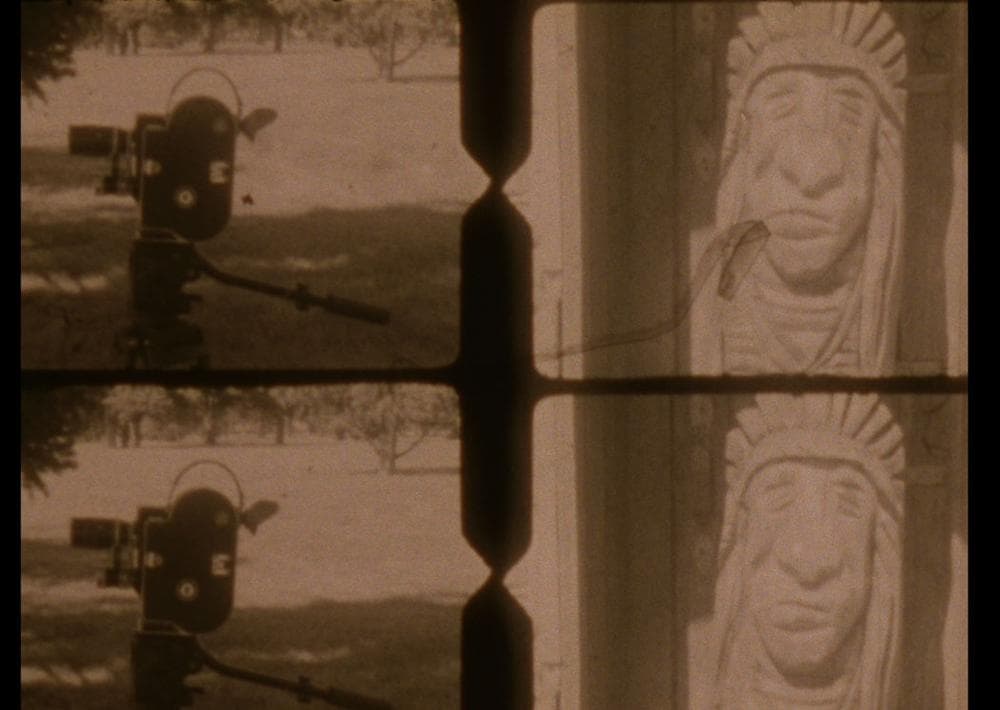Advertisement
Haverhill Doubles Down On First-Ever Experimental Film Festival
It starts like a David Lynch fever dream then takes a Capra-esque turn: Bearded twins appear out of thin air to project experimental films in an erstwhile cabaret. Civic leaders confer, sanction the ceremony, and a festival is born.
Haverhill hasn’t seen anything like this since “Gilmore Girls” was on prime time.
Yet because of twin brothers Brendan and Jeremy Smyth, lights will dim and old-school projectors will roll out the first “Haverhill Experimental Film Festival” on June 7 and 8. Four programs of shorts, presenting 45 films in competition, plus one program of films by the jurors will screen at 45 Wingate St. in downtown Haverhill, one floor above a former theater.
“Right there’s the commuter rail,” gestures Brendan while standing in front of the venue. Both in zip-up hoodies and shorts on the day before their 24th birthday, the brothers talked about the festival’s rapid evolution over coffee.

As kids, the Smyths spent their school time in Florida and their summers in Haverhill, where their father, stepmother, and two younger (also twin) brothers live. In 2011, they finished undergraduate degrees in Gainesville and moved north a year later. “Both our lives fit into one car,” says Jeremy.
Having had restaurant jobs through high school they quickly found similar work near Haverhill to help fund their first documentary. “Por Dinero” drew the directors deep into Oaxaca, Mexico, to find a co-worker’s family who speaks a nearly lost indigenous language, Chatino.
They fantasized about starting their own festival after trying to take “Por Dinero” on the road. It wasn’t finding traction with pure documentary festivals, where Jeremy says they were flat out rejected, and its structure—a combination of translated storytelling over 16mm sound and images from one Southern Mexican family’s life—left audiences at multi-genre festivals confounded, in some cases irate.
Advertisement
“Out of 20 people,” recalls Brendan, “seven would walk out the door with an angry look on their face. There were three or four who were interested or enlightened.” It’s that minority, those open to the unexpected, that the Smyths hope to reach with their Haverhill festival.
Jeremy describes experimental film as something that “needs to be viewed from beginning to end,” in contrast to video art, which is something that “goes in a museum … the same thing for nine minutes.” An experimental film could, for example, invent a technique or use a familiar technique in an unfamiliar way, or could juxtapose seeming opposites such as archival footage with of-the-moment editing effects.
“Our whole life you [take in] this Hollywood stuff. … You know what is ‘right,’ then in college we took a course in experimental film where everything turned around backwards,” adds Brendan.
One easy-going example from the festival, “Dubus” by Alexei Dmitriev, mashes up Russian techno music with scenes from classic Hollywood movies.
Of course, experimentation covers content as well as form. Gina Marie Napolitan won a Princess Grace Foundation Award while a student in 2011 for “A Catechism of Familiar Things.” She used salvaged family objects and long-exposure photography to animate a notorious moment in Brockton’s history, a Christmas time murder from 1946.
The Smyths culled selections from nearly 200 open-call submissions. “We weren’t that confident in our ability to judge a film, but after the first 90 we’d both have the feeling, ‘Oh my God, we are screening that,’” explains Jeremy. They didn’t require films to be finished in the last year or two, a common practice for festivals, and they made gut decisions with minimal background information.
Later they would discover that the films had won international awards or were submitted by visual art or film professors from the United States or abroad. The festival opens on Friday night at 7 p.m. with two films by Emerson faculty members: “West: what I know about her” by Kathryn Ramey and “Not Clear Cut” by Paul Turano.

Instead of calling on veteran jurors, the Smyths chose newcomers and fellow University of Florida alums, Kristin Reeves and Georg Koszulinski. It’s Reeves’ first time as a juror. “If I am in a festival or just go and watch all the work, it really helps me as an artist to see what’s going on in the world,” she says. For awards, she’s looking for “something I never would’ve expected to see or experience before.”
Reeves will drive to Haverhill from her assistant professor post in Muncie, Indiana, with nine 16mm projectors; together they compose a single rectangular image that explores, among other topics, materiality of the body and personal sovereignty. She shares the Saturday 5:30 p.m. slot with Koszulinski.
The festival gained financial support from the Haverhill Cultural Council, funded by Massachusetts Cultural Council, as well as an endorsement from Creative Haverhill’s executive director, David Zoffoli. “They are really fulfilling a need in this community for something out of the box… left of center,” he says. Zoffoli included the festival in a grant proposal that if funded will secure a spot on the city calendar into 2015.
“Haverhill Experimental Film Festival” tickets must be purchased at the door and with only 50 seats, Zoffoli predicts the events will sell out.
In the midst of planning the festival, the Smyths traveled to Bali to shoot footage for their second documentary. Thrilled by what they captured, again on 16mm, Brendan says, “It’s killing us not to edit it.” They admit to being so “crazy with productivity” that they haven’t had time to make friends, really. They learned about the experimental “Balagan Film Series” at the Brattle Theatre from a national listserv and thought, “If we weren’t doing this festival we’d probably be there, hanging out with them.”
Erin Trahan edits The Independent, an online magazine about independent film and moderates the summer series of The DocYard.
This article was originally published on June 03, 2013.
